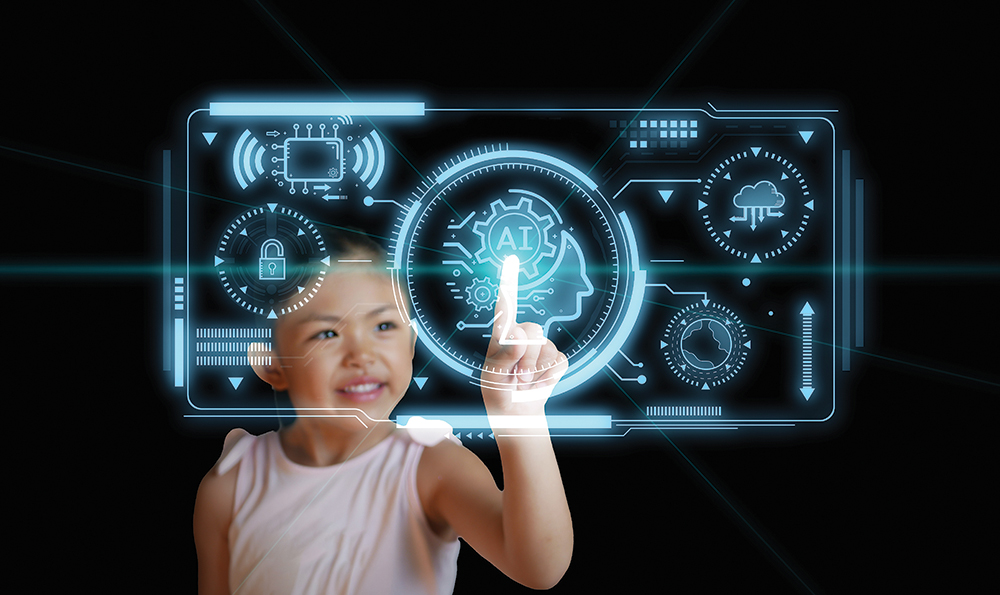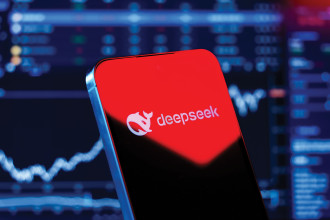
The integration of artificial intelligence (AI) into learning platforms is transforming the educational landscape. AI tools are enhancing personalised learning, improving engagement, and providing data-driven insights to educators and learners alike. One of the most significant contributions of AI to learning platforms is the ability to provide personalised learning experiences. AI algorithms analyse students’ learning patterns, strengths and weaknesses to create customised learning paths. Adaptive learning systems adjust the difficulty of tasks based on the learner’s performance.
For example, platforms like DreamBox for mathematics and Knewton for various subjects use adaptive learning technologies to tailor content to individual needs. Similarly, recommendation engines, akin to how Netflix suggests movies, can recommend resources, courses and activities based on a learner’s past interactions and preferences. Coursera and edX employ such engines to help students find relevant courses.
Intelligent Tutoring Systems (ITS) provide one-on-one tutoring through AI. These systems can deliver personalised instruction and feedback, often in real-time. Tools like Socratic by Google help students with homework by providing explanations, solving problems and guiding them through learning processes. Carnegie Learning’s MATHia offers personalised math tutoring by understanding and anticipating student needs, providing hints and feedback as a human tutor would.
AI tools can also automate the grading process, making it faster and more objective. This capability is particularly useful for large-scale assessments and standardised tests. Turnitin’s Feedback Studio, for example, uses AI to provide plagiarism detection and writing feedback, assisting educators in grading assignments more efficiently. Similarly, Gradescope is an AI-assisted grading platform that helps educators quickly grade assignments and exams, providing detailed analytics on student performance.
AI-driven Natural Language Processing (NLP) tools are revolutionising language learning by providing interactive and immersive experiences. Duolingo, for instance, uses AI to adapt to the learner’s proficiency level, offering personalised lessons and real-time feedback. Rosetta Stone employs AI to analyse speech and provide instant feedback on pronunciation and fluency, making language learning more effective and engaging. Learning platforms equipped with AI analytics tools can provide valuable insights into learner behaviour and performance. Learning Management Systems (LMS) like Canvas and Blackboard integrate AI to track student engagement, predict academic outcomes, and identify at-risk students through data analytics. Civitas Learning uses predictive analytics to help institutions improve student retention and success by analysing academic and behavioural data.
AI-powered virtual assistants and chatbots support students by answering questions, providing reminders and guiding them through their learning journey. Jill Watson, an AI teaching assistant developed by Georgia Tech, answers routine questions from students, freeing up human instructors for more complex inquiries.
HubSpot’s Chatbot is utilised by educational institutions to provide instant support for admissions, course information and technical issues. AI can enhance gamification elements in learning platforms, making education more engaging and interactive. Kahoot! uses AI to create personalised learning games and quizzes that adapt to the learner’s progress. Similarly, Quizlet employs AI to generate study sets and games tailored to the user’s learning history and goals.
The benefits of AI in learning platforms are manifold. Personalised learning experiences cater to individual needs and learning styles, while automated grading and administrative tasks save time for educators. Interactive and adaptive content keeps learners motivated, and data-driven insights enhance the ability to track and improve student performance. Additionally, AI tools can provide extra support to learners with disabilities, making education more accessible.
However, there are challenges and considerations to address. Privacy concerns arise from handling sensitive student data, necessitating robust security measures. Ensuring AI tools are free from bias and provide equitable learning opportunities is critical. The high initial costs of integrating AI technologies into existing systems can be a barrier, and over-reliance on AI tools may undermine critical thinking and problem-solving skills.
The future of AI in learning platforms is promising, with potential advancements in lifelong learning, global education and collaborative learning. AI could support continuous education and skill development throughout an individual’s life, bridge educational gaps in underserved regions by providing quality education resources remotely, and facilitate more effective collaboration among learners worldwide.
In conclusion, AI tools are reshaping learning platforms, offering unprecedented opportunities for personalised education, efficiency and engagement. As technology continues to evolve, the collaboration between educators, learners and AI developers will be crucial in maximising the benefits while addressing the challenges. The future of education lies in harnessing the power of AI to create a more inclusive, effective and engaging learning environment for all.






